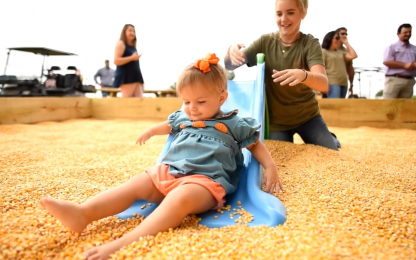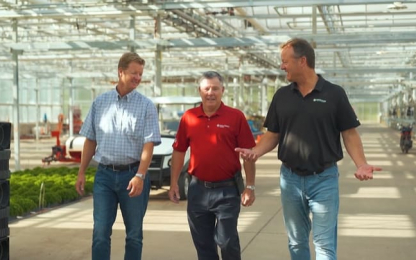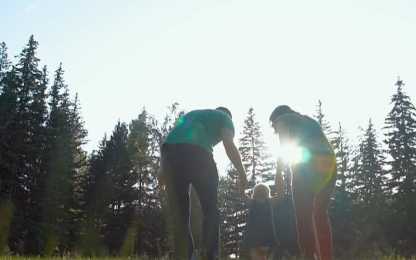“The agriculture industry can be challenging at times, but one of the things that motivates us more than anything is knowing that we’re bringing this family farm to life again.” – Mit Abott
Rebuilding a legacy
Located in Fairmont, West Virginia, Mit Abbott and her family decided to bring breathe new life into their operation through lavender—a rarely-grown commodity in their area.
“When we first started this endeavor, one of the things that came to light was ‘what are we going to name this operation?’” Mit said. It only took the family about two minutes to land on a name for the operation to honor their family legacy—Stone House Lavender. It was named after the stone house that served as a pillar of their family land for seven generations. “The stone house was built in 1850 in 90 days for $90, and my children were the eighth generation to live in it,” Mit said.
Bringing a unique commodity to the community
As the Abbotts considered what to grow, they were inspired by a group from Charleston, West Virginia, that educated farmers about growing lavender. They started researching and exploring planting lavender despite it not being commonly grown in the area.
“We decided to plant 36 plants as a test flight,” Mit said. “And those went so well that we planted a thousand plants in September of 2017.”
Lavender harvest happens from June to August, remaining dormant the rest of the year. The rest of the year, Mit and her family spend significance time keeping up the fields. “Our main role is to maintain the fields by mowing them, weed eating, pulling the weeds, those types of things,” Mit said.
Locally grown
Stone House Lavender considers itself a niche market in the industry. They produce and sell various lotions, shampoos and other lavender-based items onsite and online.
“We’ve found making our own products to be pretty beneficial,” Mit said. “Because if people have a special interest in lavender, they come to us for something that’s made locally and that they know is handmade.”
Mit said they constantly learn to evolve and diversify. To keep up with consumer trends and support the lavender fields, they built an event venue on the property where they host weddings and private events.
A helpful hand
Mit and her family believe the most critical lesson they learned while starting this operation is patience. “If we were to give anyone some advice when starting this journey, it would be that it takes patience,” Mit said. “It is not something that just happens, and it takes a lot of hard work and grit.
She said she encourages others to contact Farm Credit when looking to start their journey in agriculture. “Our relationship with Farm Credit of Virginias has been fabulous,” Mit said. “They have been nothing but supportive of our efforts, encouraging us during this whole process.”


